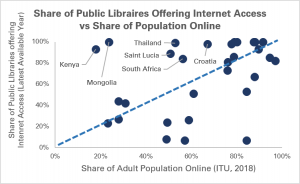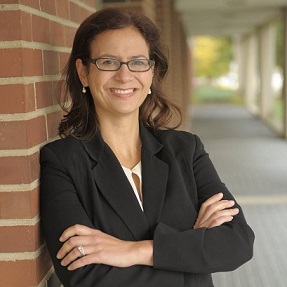One of the important issues in the library world is copyright and the legal issues that arise from it. A good understanding of these issues is essential to be in a favourable negotiating position and will help shed light on emerging difficulties in current practices.
Below you will find some common copyright terms:
Berne Convention
This is the basis for international copyright law. Agreed in 1886, it has subsequently been updated a number of times. It establishes a number of rights which should apply in all countries (such as protection for the life of the author plus fifty years), and the principle of national treatment (i.e. you should treat authors from other signatory countries in the same way as your own nationals).
Collective Licensing
Collective Licensing refers to schemes where a single organisation will offer permissions to use works from a variety of rightholders. This can be helpful for users who need only go to one place, rather than find creators and other rightholders individually. For example, collective licensing can provide easy solutions for shops wanting to play music, or for broadcasters wanting to clear the rights to use extracts from other films. The organisation in charge of the scheme should then pay out royalties to the individual rightholders.
Collective Management Organisation
Collective Management Organisations (CMOs) represent groups of rights holders which can include creators of copyrighted materials, publishers, or other rightholders such as producers or performers. This organization manages rights on behalf of its members, potentially saving them time and effort in providing permissions and collecting royalties.
Collecting Society
See Collective Management Organisation.
Contract Override
Contract override refers to situations where the terms of a licence – either explicitly or by omission (i.e. because it doesn’t mention something) – cancel out copyright exceptions. This happens because contract law is seen as having priority over other forms of law, and so it is considered that the user has signed away their rights. It can, for example, mean that preservation copying, document supply, or other uses are not allowed. Some countries make it clear that contracts should not override copyright exceptions.
Copyright
Copyright refers to a set of rights given to the creator or creators of a work. It is made up of economic rights (such as to reproduce works) and moral rights (such as the right to be named as an author). Works covered may be in different forms, and there are different approaches to how we define whether a work really is covered by copyright, for example relating to the level of creativity or originality involved. Unlike patents, copyright is intended to protect the expression of an idea in the form of a creative work, but not the idea itself.
Digital rights management (DRM)
These are access-control technologies to restrict the use of copyrighted works. They act, for example, to prevent copying, sharing, or modifications. They can work both to prevent illicit uses, and uses permitted under exceptions to copyright.
Education Exception
Education exceptions allow beneficiaries to make copies of materials subject to copyright, without seeking authorisation, for education purposes. This can also cover uses of works, such as displaying works in the classroom or as part of an online course, or using them for homework projects.
E-Lending
E-lending is the practice of library lending of digital books. As with physical books, this is only possible for a certain period, after which the eBook disappears from the borrower’s eReader. Digital rights management tools work to prevent the book being shared with others or copied. Often, publishers only make eBooks available to libraries under strict terms (embargoes, limits on the number of loans or period of access). Far from all eBooks are available to libraries.
Extended Collective Licencing
Extended collective licensing (ECL) refers to collective licensing schemes which do not just apply to works by members of a collective management organisation, but to all works or rightholders in a particular category or class. This can make it even easier for users to obtain licences, for example for mass-digitisation and making available of works. Typically, extended Collective licensing schemes require government legislation.
Illustration for Teaching
Illustration for teaching refers to uses of works in the context of education, for example as part of a classroom or online course, or potentially in course-packs or similar materials. Under some interpretations, exceptions for illustration for teaching are the same as those for education in general.
Lending Exception
The possibility to control whether works are lent does not fall under international law. However, some countries have decided to give rightholders a lending right. In turn, many have then created a lending exception for libraries in order to allow them to lend books to users, often subject to payment (see Public Lending Right).
Limitation on Liability
In many cases, it may not be clear if it is legal to make a copy or other uses of works. In these situations, and especially if the costs of copyright infringement are high, libraries and other users may tend to want to limit risk, and so be over-cautious. Similarly, they may prevent users from using works out of fear of the consequences. A limitation on liability means that as long as they have taken precautions, libraries and others do not need to face high costs if they make mistakes, or if their users infringe copyright.
Liability (Primary, Secondary)
We talk about primary liability in situations when someone is accused of directly infringing copyright themselves, for example by making an illegal copy of a book and selling it on. Secondary liability refers to situations when someone can be held partially responsible for an infringement, for example when they have facilitated this. For example, if a library has not told users about what copying is or is not acceptable, it may face secondary liability. Similarly, internet platforms that do not act to remove infringing content once they become aware of it can also be considered secondarily liable.
Marrakesh Treaty
This is the 2013 WIPO agreement that commits all states parties (members) to introduce measures to allow people with print disabilities, those who support them, and institutions such as libraries to make copies of works in accessible formats (braille, DAISY, audiobooks) for people who would otherwise not be able to access them. It is then also possible to share these copies, including across borders. The Treaty includes some possibilities to restrict these rights. IFLA does not recommend using such possibilities.
Open Education Repositories
This refers to platforms which give access to teaching, learning or research materials (Open Educational Resources – OER) which are either in the public domain or under an open licence allowing their use, adaptation, distribution free of charge. This term was adopted in 2002 by UNESCO.
Orphan Works
An orphan work is a work protected by copyright but for which the rights holders are not identifiable or cannot be contacted. Unless there are exceptions in place, this makes it very difficult for those who hold them to do anything with them.
Out-of-Commerce Works
Out-of-commerce works are works that are still protected by copyright but are no longer commercially available. This can be because the authors and publishers have decided neither to publish new editions nor to sell copies through the customary channels of commerce. Sometimes, such works are referred to as being ‘out-of-print’. In some understandings, out-of-commerce works also include works that were never-in-commerce (i.e. not produced to be published).
Preservation Exceptions
Preservation exceptions allow beneficiaries to make copies of materials subject to copyright, without seeking authorisation, for the purpose of preservation. For example, it can include digitisation, taking copies on microfilm, photocopying or other forms, depending on the specific terms of the law.
Press Publishers’ Right:
The right of press publishers is the subject of Article 15 of the European Copyright Directive. This was introduced following efforts from publishers to obtain a share of incomes from online news-aggregators such as GoogleNews by forcing them to pay to display even sort snippets of text. The Article risks leaving aggregators with two options: using the contents of press publishers for remuneration or no longer indexing them (reducing the visibility of publishers). Google has said it will not pay compensation in Germany and France and has left it up to publishers to choose whether they want free indexing or not.
Public Domain
The public domain includes all works which are not subject to economic rights under copyright. The public domain is not always explicitly defined in law. Some countries try to oblige payments for use of public domain works.
Public Lending Right
Public Lending Right refers both to the right some countries give rightholders to decide whether works are lent or not, and to the payment they can be entitled to receive when this is the case.
Remunerated Exceptions
There is an ongoing debate about whether exceptions to copyright should be subject to remuneration or not. Given that exceptions, according to international law, should not cause unreasonable prejudice to the legitimate interests of rightholders, some argue that it therefore makes no sense to make enjoying exceptions conditional on making payments. Others suggest that there should nonetheless be payment.
Reproduction Right
The right of reproduction is a legal provision giving copyright holders the exclusive right to produce copies of works. In order to make a copy, anyone else needs to seek authorisation from the copyright holder, unless an exception exists.
Retracted Works
Retraction takes place when an author or publisher removes a previously published work from an academic publication, usually on the basis that it is considered not to have followed good scientific practice. Retracted works are generally removed from online collections.
Research Exception
Research exceptions allow beneficiaries to make copies of materials subject to copyright, without seeking authorisation, for the purpose of research. They can also cover other uses of works, such as analysis. For example, research exceptions allow students to copy parts of books or articles to read them, and can also support text and data mining.
Reversion Right:
This refers to the right of authors who have signed away their rights to publishers to recover these after a defined time, or if their work is no longer on sale. Versions of this possibility are included in laws around the world, but are not standardised.
Safe Harbour
Safe harbour refers in general to situations where, by complying with certain criteria, actors can avoid liability for copyright infringement. This is often used to describe limitations on the liability of internet platforms, which do not face liability if they act to remove infringing content when notified (it is assumed that prior to notification, they do not know whether the content they host is legal or not). Safe harbour can also benefit other actors, such as scientific repositories, allowing them to enable content sharing without the cost of having to review everything uploaded by users.
There are currently various efforts to restrict possibilities to benefit from safe harbour provisions. For example, Article 17 of the EU’s Copyright Directive looks to suggest that platforms such as YouTube can be held immediately responsible for infringing content appearing, even if it has been uploaded by a user.
Scientific Repositories
This refers to a platform hosting research papers (not just in the sciences), facilitating open access to these. They often hold ‘pre-print’ versions, rather than the final ‘version of record’, with publishers retaining the right to distribute the final version. In many cases, researchers themselves are responsible for uploading papers, bringing the risk that the wrong version may be uploaded.
Technological Protection Measures
Technological protection measures (TPM) are any digital management tools used to restrict what users can do with digital materials. See also Digital Rights Management.
Term
Term refers to the length of time for which works enjoy protection. This is usually measured in a certain number of years from the death of the author – a minimum of fifty under international law, but seventy in the European Union and United States. There are different term lengths for different types of work and right.
Text and Data Mining
Text and data mining (TDM) refers to the use of automated analysis of data sets in order to identify trends or correlations. It promises both to accelerate scientific research, as well as providing a basis for machine learning. Given that TDM can involve taking a copy of works to be analysed, some see it as requiring a copyright exception or authorisation. Others suggest that given that data itself should not be subject to copyright, there is no need for an exception. Among countries where legislation has happened, some have limited exceptions to certain purposes, while others offer broader possibilities
Unpublished Works
When a work hasn’t been formally published or otherwise divulged to the public, it is described as unpublished. Archives, for example, are often unpublished works. They can be subject to different rules to published works, and in some countries still enjoy eternal copyright protection.
Upload Filters
Upload filters, also called web filters, refer to tools that check content uploaded to an internet platform in order to identify (potential) copyright infringement. They are controversial in that they effectively treat users’ as guilty until proven innocent of copyright infringement. There is no evidence, furthermore, that such filters can systematically recognise when the re-use of a copyrighted work is legitimate because of an exception or limitation. There is a lot of discussion about upload filters due to Article 17 of the EU’s Directive on Copyright in the Digital Single Market, which risks obliging all platforms to use such filters.
Works
This is the term used to apply to materials which may be subject to copyright. It covers books, articles, other publications, visual art, audio and audio-visual creations and more. There are sometimes efforts to have vaguer things such as tastes, ‘themes’ or even smells classed as ‘works’, and so to gain them copyright protection.

 ight Librarian, University of Illinois.
ight Librarian, University of Illinois. se Nicholson, BA HDip Libr (UNISA); LLM (WITS) Scholarly Communications Librarian, University of the Witwatersrand, Johannesburg, South Africa
se Nicholson, BA HDip Libr (UNISA); LLM (WITS) Scholarly Communications Librarian, University of the Witwatersrand, Johannesburg, South Africa